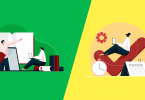
By now it should be well established that e-learning is no fad. If it has taken the world by storm, it is because it caters to a very real demand for fast, asynchronous, cost-effective and scalable education that has emerged in our fast-paced, inter-connected and trans-national world.
It’s no wonder then, that it’s a good fit not only for educational institutions and businesses, but also for NGOs, as these organizations (from Greenpeace and Doctors Without Borders to your local non-profit volunteer group) are the epitome of fast-paced, inter-connected and trans-national entities:
• fast-paced, as they have to plan and organize events and actions, respond to crisis situations, handle rapidly changing conditions and deal with all kinds of urgent legal or bureaucratic demands in the regions they are active in.
• inter-connected, as NGOs consist of multiple departments, branches and locations, co-ordinating the work of professionals in different skills (from the, always necessary, secretarial work to doctors, photographers, teachers etc working in the field).
• trans-national, as NGOs (especially larger ones) work both inside and outside national boundaries, and can have offices and field operatives in lots of different countries, with some of them, such as Greenpeace, even spanning the whole globe.
A learning management system (LMS) platform such as eFront is a perfect fit for an organization with those attributes.
Unlike traditional classroom based education, e-learning courses can be deployed and updated quickly, and can be consumed at the learners’ own pace and convenience.
If an NGO, for example, has to handle a new crisis situation, educational material covering that can be uploaded, deployed and made available to all concerned in a few hours or days.
With a good LMS, course material can be re-used and adapted to changing needs, and content can be combined with existing PDFs, Word documents and Powerpoint presentations, or even web based information from YouTube videos to Wikipedia articles.
Such an LMS can also handle any complex hierarchy or operational structure an NGO might have, allowing separate courses and lessons for different branches, groups, classes, skill-sets and user types. After all, the educational needs of nurses treating AIDS in Africa is different to the needs of their cohorts organizing awareness events and fund-raises back at home.
An LMS platform allows each of the groups and departments that comprise an NGO to have its own e-learning material, but also makes it easy to share educational content that needs to be common among them.
As for working across national boundaries, this is were e-learning naturally shines, as it just needs to be deployed once (something which is even taken care of for you in the case of a hosted or cloud-based LMS) and it’s immediately available to anybody with a web browser and an internet connection, no matter where they are in the world.
Not only that, but a well designed LMS is also easy to use, even for non-tech people (which NGO often have to cater for), and can scale from a few hundred to hundreds of thousands of students with the same minimal cost.
Cost is, of course, a necessary consideration, as most NGOs have to operate on a tight budget and justify every penny they spend. In this regard, e-learning is so cost effective that it makes little sense to even begin comparing it to the costs of traditional education — hiring teachers, buying course-books, renting classroom, etc.
As for educational needs, those abound in an NGO.
From onboarding programs for new employees (or members) and incident-based information (e.g. on how to handle a particular humanitarian crisis or how to treat a certain disease), to awareness programs catered to the general population, there is no shortage of ways an LMS platform can be used by an NGO.
Including the traditional LMS use cases that apply to any organization: knowledge retention, skills training, employee orientation, certification issuance, etc.
It’s no wonder that most leading NGOs have already adopted e-learning, employing tools such as eFront to spread the knowledge of what they are doing and improve their operational efficiency.
With the tight budgets and high demands that NGOs have, e-learning can make all the difference — so that they can make a difference to the world in return.




